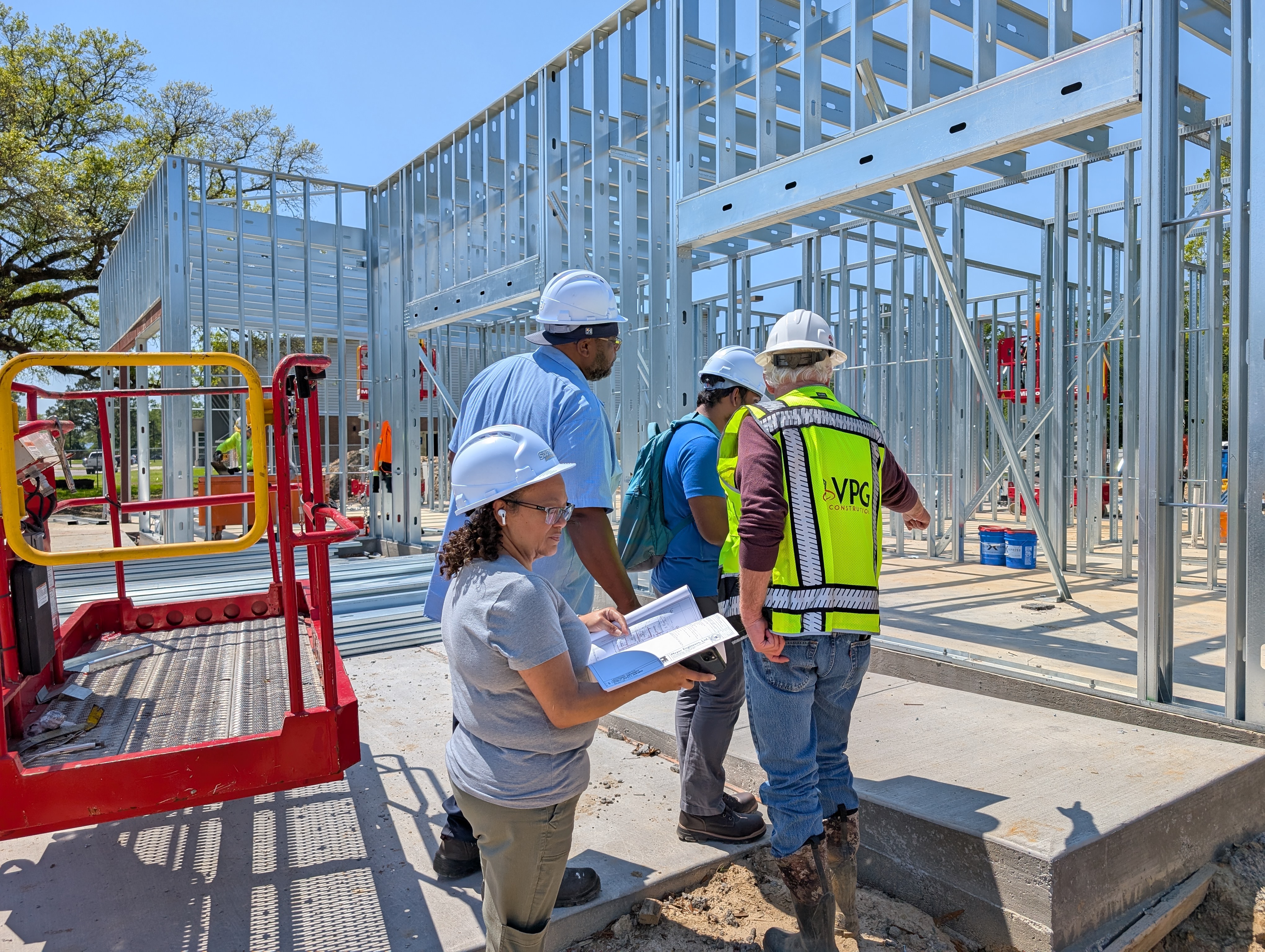Student Learning Outcomes

The Department of Construction Management has adapted the student learning outcomes for a bachelor of science degree in construction management from the American Council on Construction Education (ACCE) as our own. They are as follows:
- Create written communications appropriate to the construction discipline.
- Create oral presentations appropriate to the construction discipline.
- Create a construction project safety plan.
- Create construction project cost estimates.
- Create construction project schedules.
- Analyze professional decisions based on ethical principles.
- Analyze methods, materials, and equipment used to construct projects.
- Apply electronic-based technology to manage the construction process.
- Apply basic surveying techniques for construction layout and control.
- Understand different methods of project delivery and the roles and responsibilities of all constituencies involved in the design and construction process.
- Understand construction accounting and cost control.
- Understand construction quality assurance and control.
- Understand construction project control processes.
- Understand the legal implications of contract, common, and regulatory law to manage a construction project.
- Understand the basic principles of sustainable construction.
- Understand the basic principles of structural behavior.
- Understand the basic principles of HVAC, electrical and plumbing systems.
In addition, we have also adapted the student learning outcomes for a bachelor of science degree in construction management from the Applied and Natural Science Accreditation Commission (ANSAC) of the Accreditation Board for Engineering and Technology (ABET):
- an ability to apply knowledge of mathematics, science, and applied sciences
- an ability to design and conduct experiments, as well as to analyze and interpret data
- an ability to formulate or design a system, process, or program to meet desired needs
- an ability to function on multidisciplinary teams (e) an ability to identify and solve applied science problems
- an understanding of professional and ethical responsibility
- an ability to communicate effectively
- the broad education necessary to understand the impact of solutions in a global and societal context
- a recognition of the need for and an ability to engage in life-long learning
- a knowledge of contemporary issues (k) an ability to use the techniques, skills, and modern scientific and technical tools necessary for professional practice.
